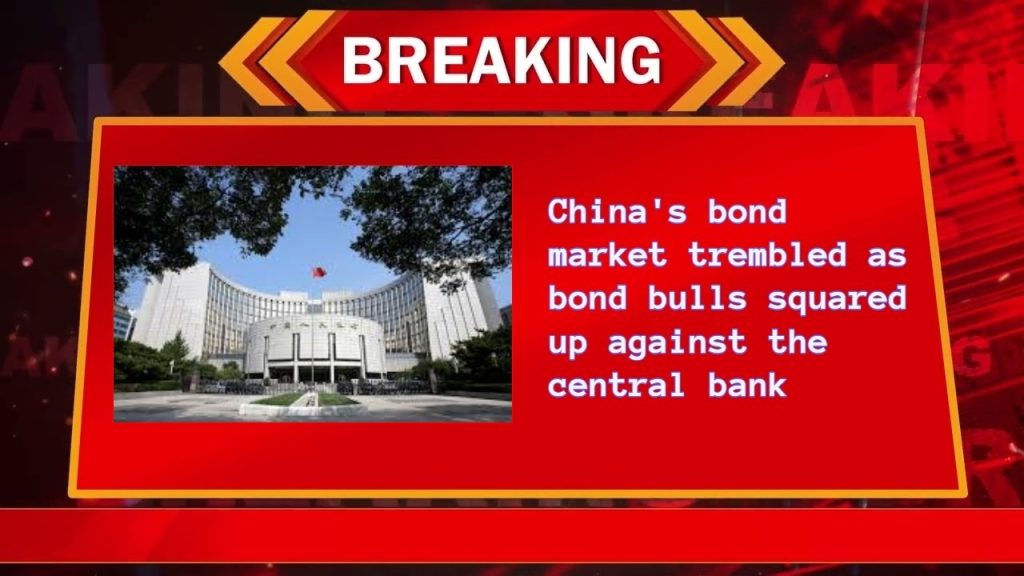The second-biggest bond market in the world, China’s, is tense after a wild week during which the central bank began to heavily intervene to stop a decline in yields despite the country’s faltering economy.
However, ardent investors argue that the government bond bull market still has legs, pointing to the shaky Chinese economy, deflationary pressures, and a lack of appetite for riskier assets among investors.
As investors flee volatile stocks and a collapsing real estate market in favor of government bonds and banks lower deposit rates, China’s central bank has issued repeated warnings about potentially destabilizing bubble risks. Diminished yields further impede the People’s Bank of China’s endeavors to stabilize the declining value of the yuan.
Top Down Regulation
However, the authorities have launched a new front in the war of attrition against speculators and unwanted price movements in the nation’s stock and currency markets, with the PBOC now putting warnings into action to calm bond bulls.
According to Ryan Yonk, an economist from the American Institute for Economic Research, “China’s financial markets, including the bond market, are subject to top-down regulation,” in contrast to the West.
As economic growth slows, “Chinese officials will face increasing difficulty in maintaining such tightly controlled financial markets, and additional interventions are likely, and may signal the very instability Chinese officials are seeking to avoid.”
First Shot
The first salvo was fired last Monday, during a worldwide sell-off that sent money into safe havens like treasuries and caused China’s long-dated yields to reach historic lows. Treasury futures surged to all-time highs, while state institutions were observed liquidating massive quantities of 10- and 30-year bonds.
Data and traders indicated that state banks continued to dump debt during the week, reflecting the central bank’s occasional use of large banks as stooges to manipulate the yuan currency market, traders said.
“It looks to be the same playbook,” a fund manager in Shanghai remarked, referring to Pan Gongsheng, the governor of the People’s Bank of China, as the former head of China’s foreign exchange regulator.
The PBOC stopped supplying cash through open market operations on Wednesday for the first time since 2020, sending another warning to bond buyers. This contributed to the largest weekly cash withdrawal in four months, which helped to boost rates.
Increased Government Bond Issuance
Undoubtedly, the flurry of actions has caused some investors to become wary. The 10-year and 30-year Chinese treasury futures had their first weekly decline in over a month.
UBS Global Wealth Management’s Chun Lai Wu, head of Asia Asset Allocation, issued a warning, stating that increased government bond issuance is likely to slightly offset any anticipated support for Chinese bonds from any monetary easing. The yield on China’s 30-year Treasury note is currently 2.37%, down from 3% a year ago.

